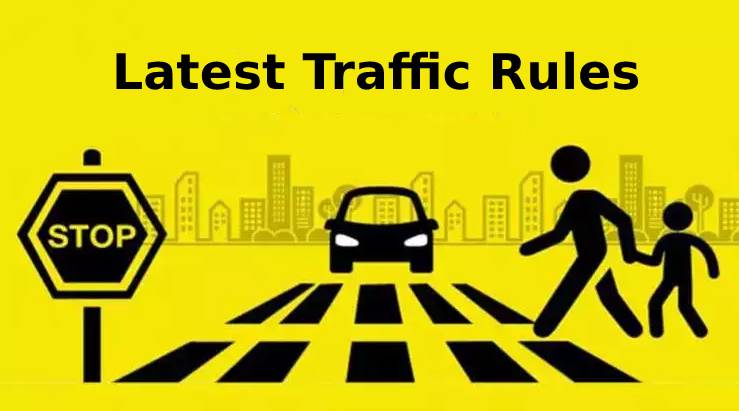Latest Traffic Rules , Hey, folks! if you are an Indian citizen then you must drive on Indian roads. Well, if the answer is yes then this article is going to help you for sure because here we are talking about the rules and regulations that you ought to follow if you are on the roads of the nation. However, there can be some differences between what you hear and what you do. Although, not everyone obeys them you should know that the rules were made for your convenience which keeps you safe and you should also keep this in the mind.
India is known for its bustling cities and chaotic traffic. The roads are filled with all sorts of vehicles ranging from bicycles to trucks. With such a diverse traffic scenario, it becomes essential to have traffic rules and regulations in place to ensure safety on the roads. In India, traffic rules and regulations are governed by the Motor Vehicles Act, of 1988. This act lays down the rules and regulations for all types of motor vehicles, including cars, trucks, buses, motorcycles, and bicycles. The act also provides for the issuance of driving licenses, registration of vehicles, and insurance requirements.
Traffic Rules & Regulations In India
One of the most important traffic rules in India is the wearing of helmets while riding a two-wheeler. This rule is enforced strictly, and violators can face hefty fines. The rule has been implemented to reduce the number of head injuries sustained by two-wheeler riders in accidents. Similarly, the use of seatbelts is mandatory for drivers and passengers in cars. Another important traffic rule is the use of indicators while changing lanes or taking turns. This rule is essential for preventing accidents, especially on busy roads. It is also mandatory for all vehicles to have functional brake lights, headlights, and taillights.
In India, the speed limit for vehicles is regulated based on the type of road. For instance, on highways, the speed limit for cars is usually around 80-100 km/h, while on city roads, it is typically around 40-50 km/h. Speed limits are enforced through the use of speed cameras and police patrols. Violators can face hefty fines or even have their licenses suspended.
The use of mobile phones while driving is strictly prohibited in India. This rule is enforced to prevent distractions while driving, which can lead to accidents. Violators can face fines and penalties, and in some cases, their licenses can be suspended. In India, drunk driving is a severe offense. The legal blood alcohol limit is 0.03%, and violators can face imprisonment, fines, or even have their licenses revoked. The government has also implemented strict penalties for repeat offenders to curb the rising cases of drunk driving.
Latest Traffic Rules In India
In recent years, the Indian government has also introduced new regulations for electric vehicles. These regulations include the use of green number plates for electric vehicles and the installation of charging infrastructure across the country. In addition to the Motor Vehicles Act, the Indian government has also launched several initiatives to promote road safety. These initiatives include campaigns to increase awareness about road safety, the establishment of road safety cells, and the implementation of stricter penalties for traffic violations.
Despite the regulations and initiatives, India still has a high rate of road accidents. According to a report by the Ministry of Road Transport and Highways, over 1.5 lakh people die in road accidents in India every year. This is mainly due to a lack of enforcement of traffic rules, poor infrastructure, and reckless driving.
Traffic rules and regulations are essential for ensuring safety on the roads. The Motor Vehicles Act lays down the rules for all types of motor vehicles, and the government has launched several initiatives to promote road safety. However, there is still a need for stricter enforcement of traffic rules and better infrastructure to reduce the number of road accidents in India. As responsible citizens, it is our duty to follow traffic rules and promote road safety to make India’s roads safer for everyone.






GIPHY App Key not set. Please check settings